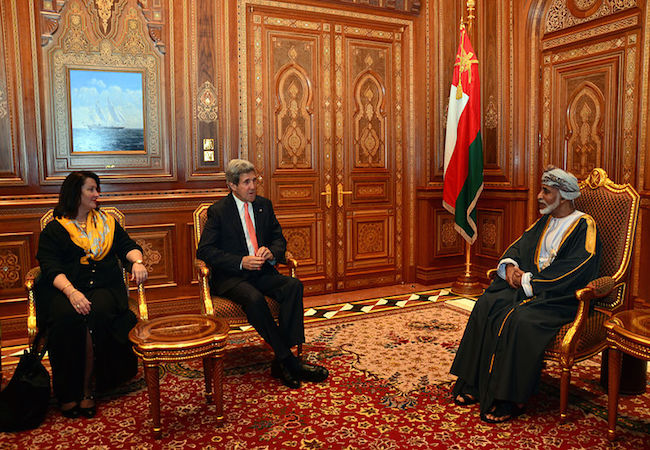Is the Iranian deal the beginning of a new diplomatic era in the Middle East?

By Rocío Corrales Rayón
It is no secret that Oman played the broker in the Iranian nuclear deal, and Sultan Qaboos bin Said was internationally thanked by the US and Iran. As various sources were quick to point out then, this was not the first time that Oman successfully acted as a mediator between countries, following its “friend of all, enemy of none” principle. But this time the role played by the Sultanate had wider implications, and the nuclear deal has been, despite of some criticism, internationally referred to as a triumph of diplomacy: “In life, what matters most isn’t how a decision compares to your ideal outcome. It’s how it compares to the alternative at hand”. So leaving aside the debates about US’ negotiation skills vis-à-vis Iran, the agreement is undoubtedly the beginning of a new period in the history of the region.
And some of the consequences are being seen already: Iran is willing to expand its soft power among its neighbors in order to reaffirm its long-term power potential, and has not waited to do so, sending clear signals to the US, Israel and the GCC countries that Tehran will make the most of this opportunity that now lays ahead. Those who hoped that Iran would wake up slowly from its long period of diplomatic lethargy and those who expected Iran expanding its dominance and achieving its imperialist aims merely through its proxy militias, would have probably not predicted a more active, immediate high-level diplomacy as it is occurring now with the Syrian initiative. Not coincidentally, this initiative comes after the Iranian deal, and not by chance either, the Sultanate of Oman is behind it.
As Kenneth M Pollack put it in front of the US Senate’s Committee on Foreign Relations, the Iranian nuclear agreement “is likely to be made or broken on the battlefields of Iraq, Syria, and Yemen, not in the centrifuge halls of Natanz and Fordow”. A diplomatic solution to these conflicts is undoubtedly the best way the agreement could be made. Although Pollack is of the opinion that Iranian foreign policy will not undergo a significant change (including an increase in its aggressive involvement in these countries), it is undeniable that Iran’s participation in the Syrian initiative so early after the deal is not accidental.
Now what matters is how Iran will behave in such a convoluted moment for the region, and how other regional powers react to it. All eyes on Syria, Iran is looking to reaffirm its regional power. And Oman, the “unsung hero” of the Iranian deal is looking towards what may become the second “triumph of diplomacy” of our times. Oman is already playing a role in the conflict in Yemen simply by choosing not to take part in the Saudi-led coalition unlike its GCC neighbors. The Sultante was also the only GCC state not to stop diplomatic relations with Syria after the conflict started in 2011. And it is this scenario that could bring the US, Iran and Russia to the negotiation table, together with, and here the novelty, Saudi Arabia and other GCC countries that are still unsure about the positives of the Iranian deal. This is much needed in a moment where the Saudi-led coalition in Yemen is not achieving the desired results and the US feels in the need to appease its Sunni allies and reassure their security concerns.
What the nuclear deal could mean for the region is the first of more successful mediation efforts, i.e. Syria and Yemen, with two major actors: Oman and Iran. An article in The National recently discussed whether the nuclear deal will lead to a shift in Iranian foreign policy towards the pre-2011 model. What is interesting is that the author argues that the 2011 Arab uprisings “presented a rare opportunity for Iran to enter the region after a decade of resistance by many of the Arab world’s traditional regimes”, spreading its arms much deeper and wider across the region. However, Tehran chose not to do so and instead resorted to backing its proxy militias in Syria, Iran, Lebanon and Yemen. Post-nuclear deal diplomatic activity goes back to its pre-2011 strategy towards its neighbors “as an attempt to pave the way for an opening more than a serious move to end the conflict in Syria”, he says. However, a diplomatic move to end the conflict is a move, whatever the reasons behind it, and it is what has been lacking for the last four years since the conflict started. If successful, it will restore Yemen hopes and become a win-win situation for the entire region.




